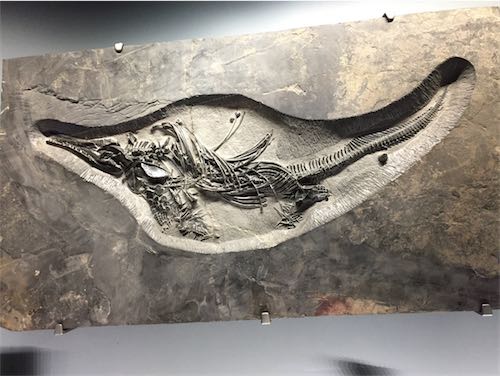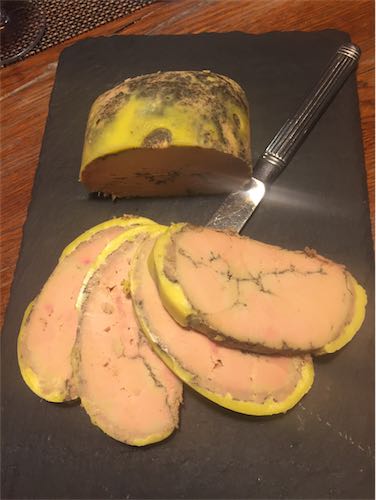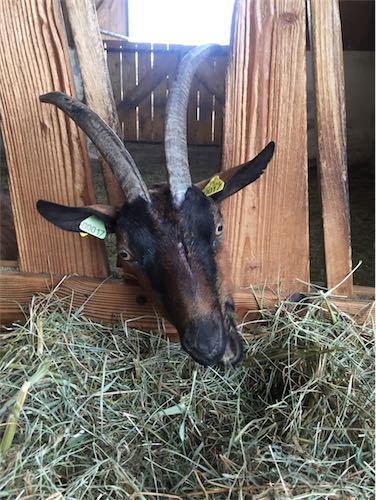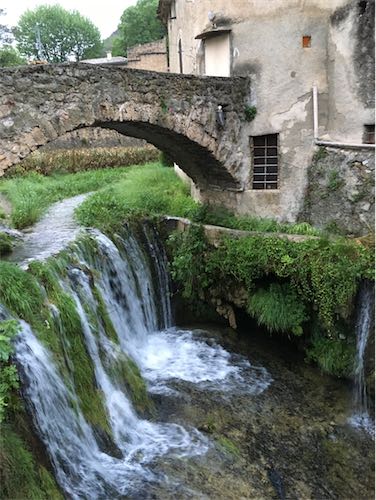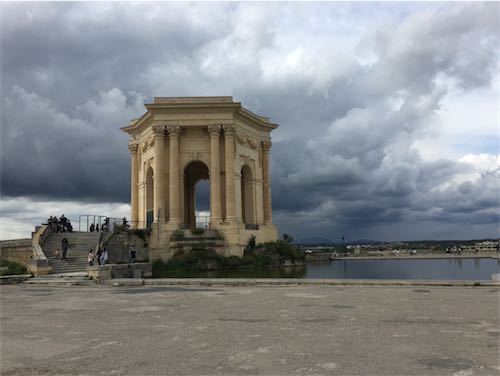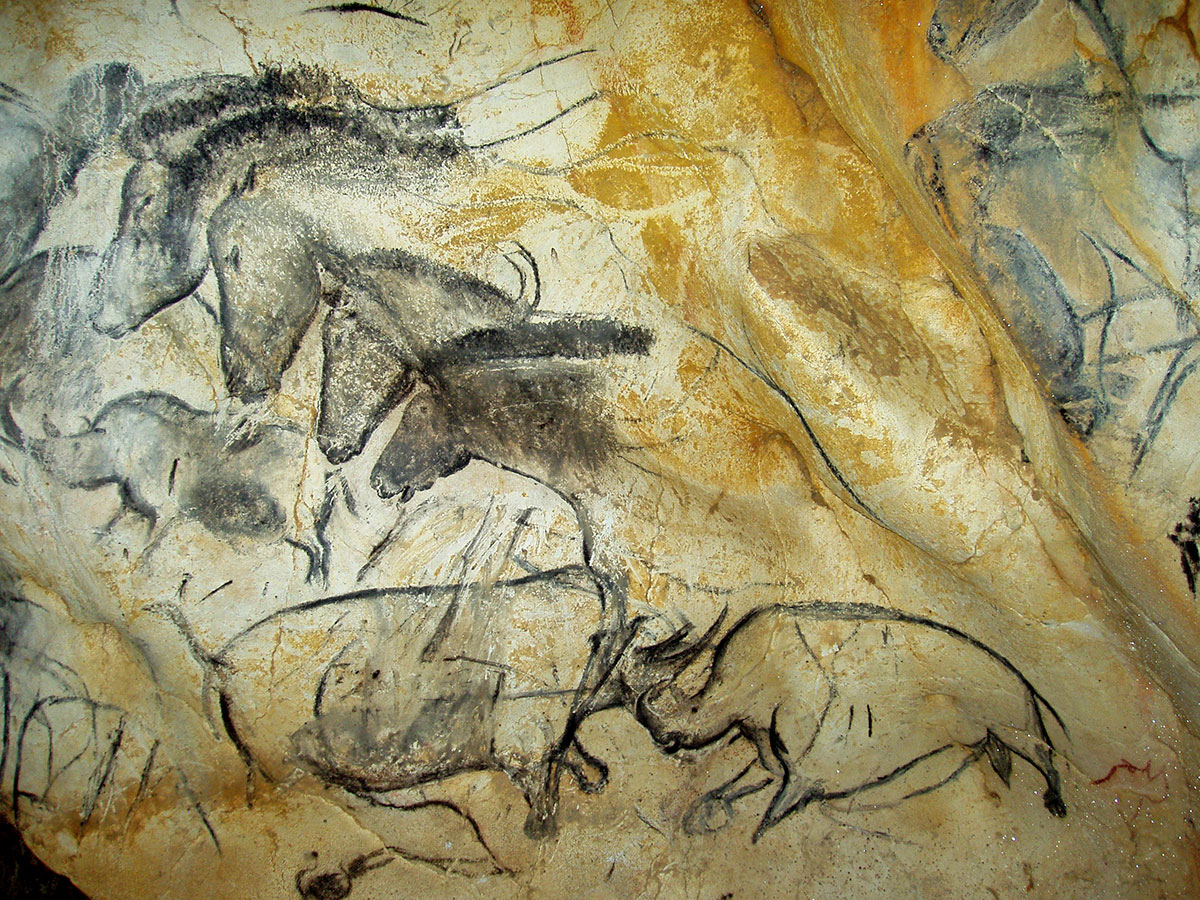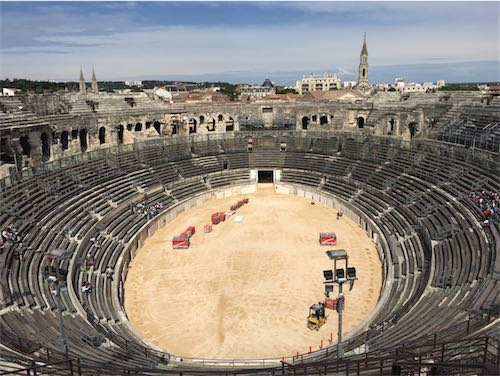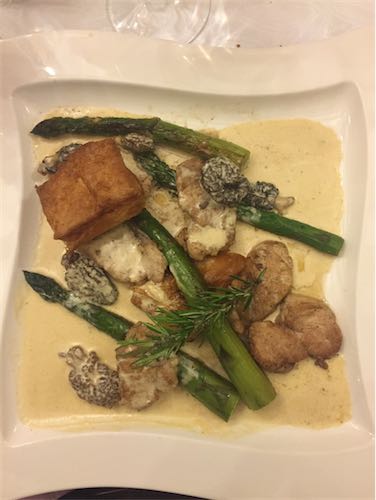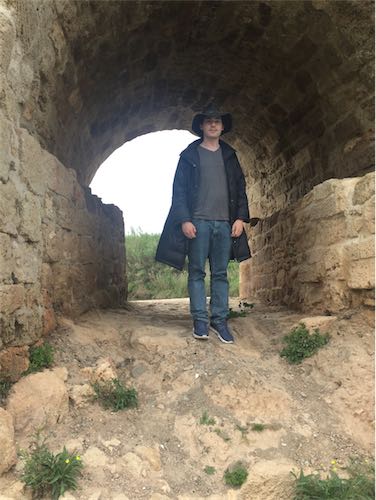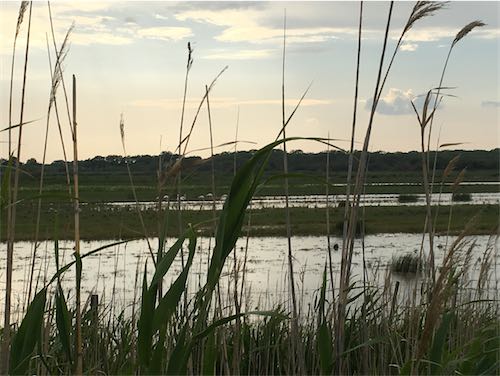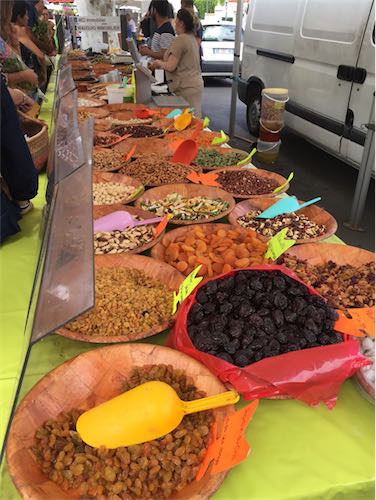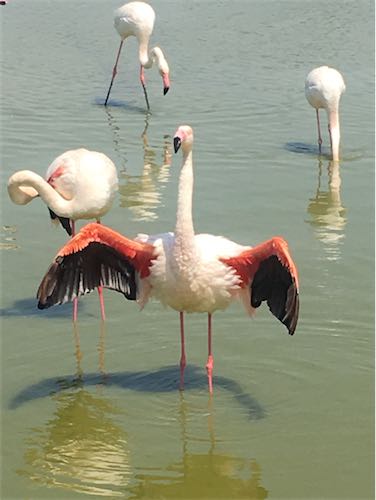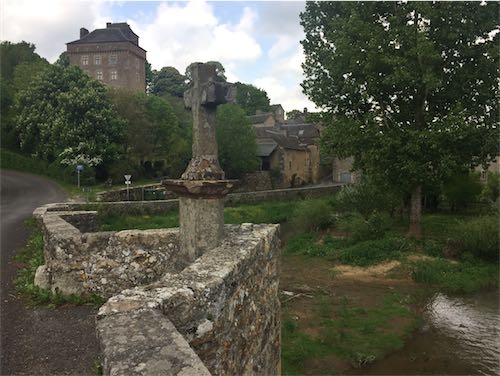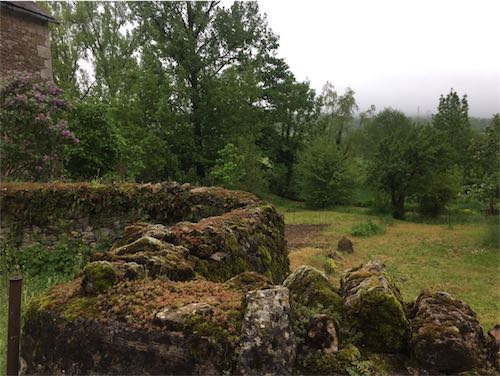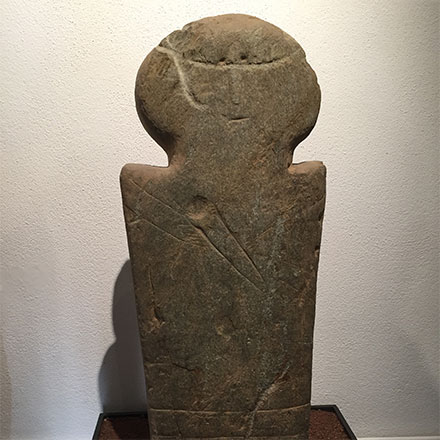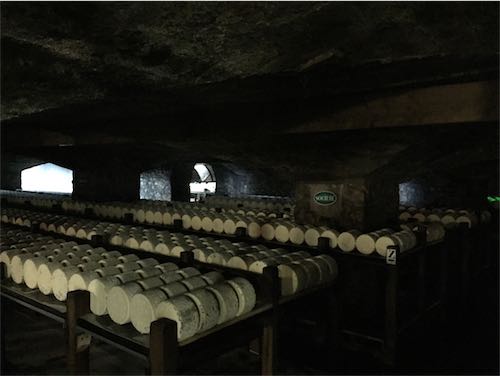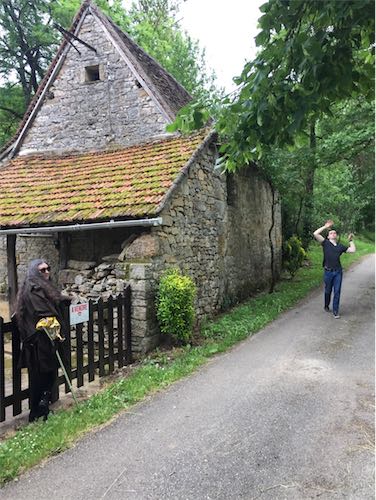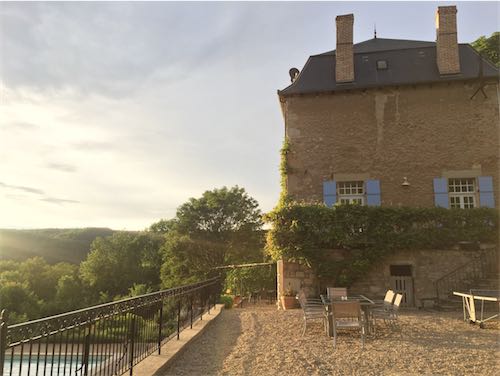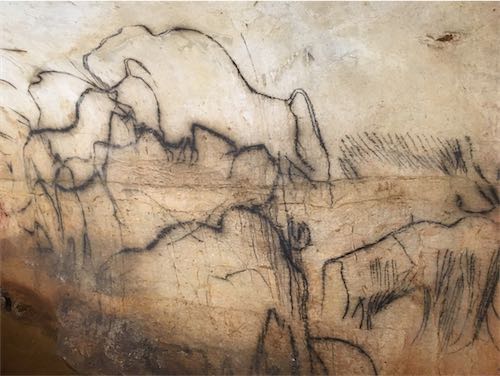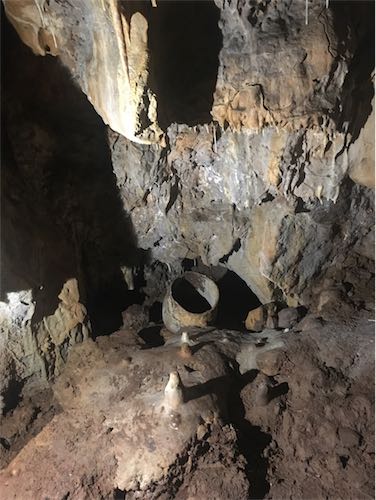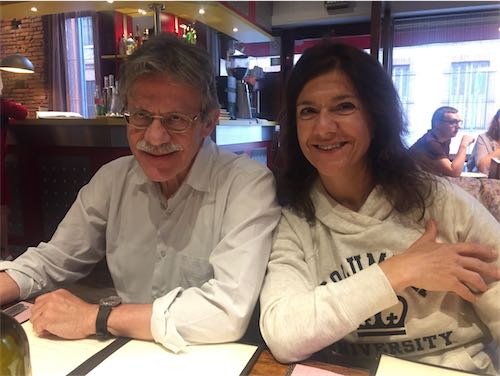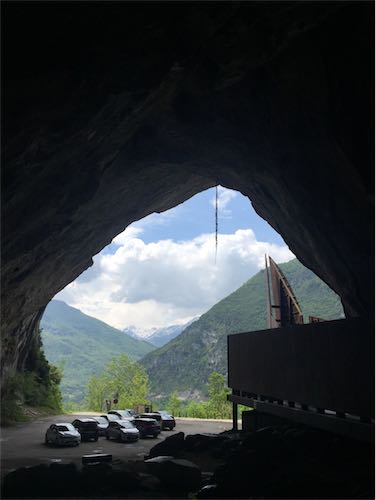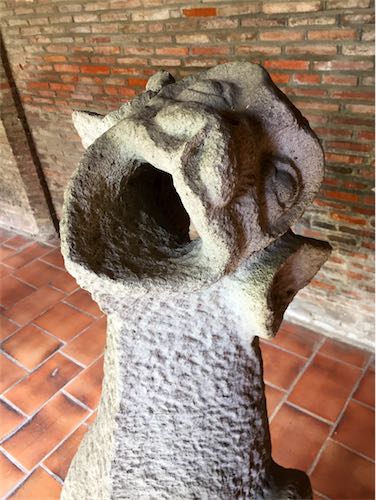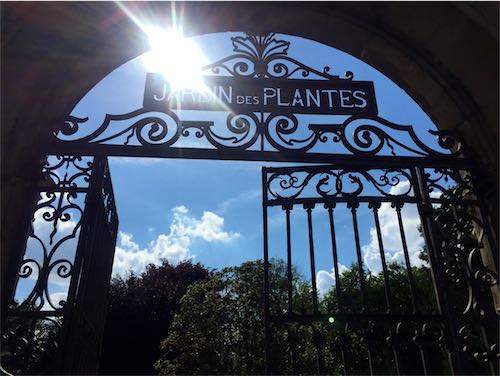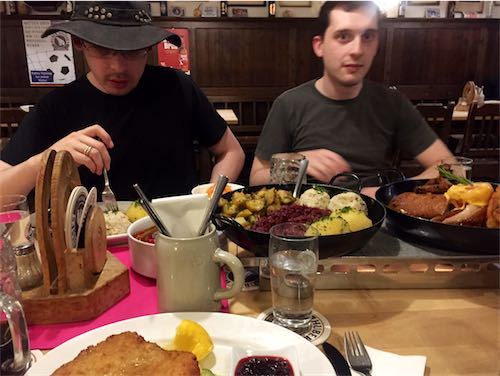Day 14 — Montrozier Airbnb Rental — Montrozier, Aveyron, Occitania, Midi-Pyrénées map
With a lot of grumbling over the need to change locations, aggravated because the winery was so comfortable, we left Lansargues and drove north through the mountains.
We went through alpine landscapes that were over a kilometer in elevation. Everything was pasture land; we didn’t see crops. But we were very high up and some trees were just began to grow buds. Perhaps it was too early in the season to plant. But there were plenty of sheeps, cows, and goats. In the distance, we could spot a little farm or two, and occasionally even a small village marked by a church tower.
We passed bucolic pasture lands that reminded me a lot of Pennsylvania. Distant fields would sometimes be completely covered by white or yellow flowers, which from a distance, looked like snow or gold. So beautiful!
And we crossed a beautiful—and scary—bridge.
At the time of the Viaduct de Millau’s construction in 2004, it held the world record for both the tallest pylons and the highest road deck—270 meters above the Tarn River at its highest point.
As San Franciscans, we have a thing for suspension bridges. This one is a new wonder of the world, competing for the second most beautiful.
We arrived at Montrozier, the most picturesque village we have ever visited in France. This is the entrance to the small town. There is a castle (left), a museum, and homes that, from the exterior, are mostly un-modernized.
Christopher removes an errant leaf before taking a picture of a conveniently accessible slate roof for one of our clients.
This region of Aveynon is famous for stone roof tiles in this shape. We mentioned it to our host, who responded:
“As for the roof tiles, they are called Toiture en Lauze and they are unique to this part of Aveyron; as soon as you go towards Aubrac or Toulouse you see that they are no longer the same. Lauze is one of my favorite things about Aveyon, except when it’s time to repair your roof. And that’s another story.”
While we sat on the bench, we heard a sound: a black bird fell dead from a tree. Strange. We’ve come across dead birds, but we’ve never before been witness to the moment of death.
The bird died inside the garden of the Château de Montrozier; a friendly villager told us that the castle is owned by an American oil millionaire.
While Christopher and I were walking around the town, the boys settled into our rented house and chose their bedroom floors/suites. The house has seemingly an endless supply of bedrooms—and wings. Each boy ended up with multiple rooms, and yet, both can be found in Nicholas’s chosen bedroom playing games.
The living-room has a TV, game console, and tons of games, CDs, and DVDs. The owners are a family with four teenage boys. The mother, Elizabeth, is an American married to a Frenchman. They live in Paris and this is their vacation home. There’s a train station to Paris just about ten minutes away by car. They have family in town—the house behind ours is owned by a brother-in-law, and the husband’s niece and her family lives just down the street. We met the niece and her family during our wanderings just as Christopher and I managed to accidentally walk past “our” house. They asked us if we needed anything.
We never actually met Elizabeth; we communicated via email. She told us that today is a holiday and everything might be closed, but that her extended family will make sure “we won’t starve.” The French have been incredibly nice and hospitable to us this entire trip.
Since it is a national holiday, nothing local was open. Per our host’s recommendations, we went to a larger town about twenty minutes away which featured a restaurant in a local bowling alley, Le Bowling du Rouergue. “It’s not as gruesome as it sounds,” said Elizabeth. She particularly recommended the beef tartare.
While we ate a lot of raw meat—Nicholas ordered a steak bloody rare—the standout was the charcuterie plate, an appetizer on Nicholas’s prix fixe, which was far more than any human could eat. We couldn’t figure out if we were supposed to take what we wanted and leave the rest for future diners; given the quantity, that’s the only thing that made sense. And we decided that every bowling alley restaurant should have fresh fois gras on its menu.
Christopher pulls on the elastic Pommes Aligot while Timothy hides from being photographed.
They also specialized in a regional dish made table-side called Pommes Aligot, which was a sort of cheesy whipped and mashed potatoes, repeatedly pulled taffy-style until it had the stringy, elastic consistency of a space-age plasticine. While we generally frown on the kids playing with their food, Nicholas had the right idea here.
